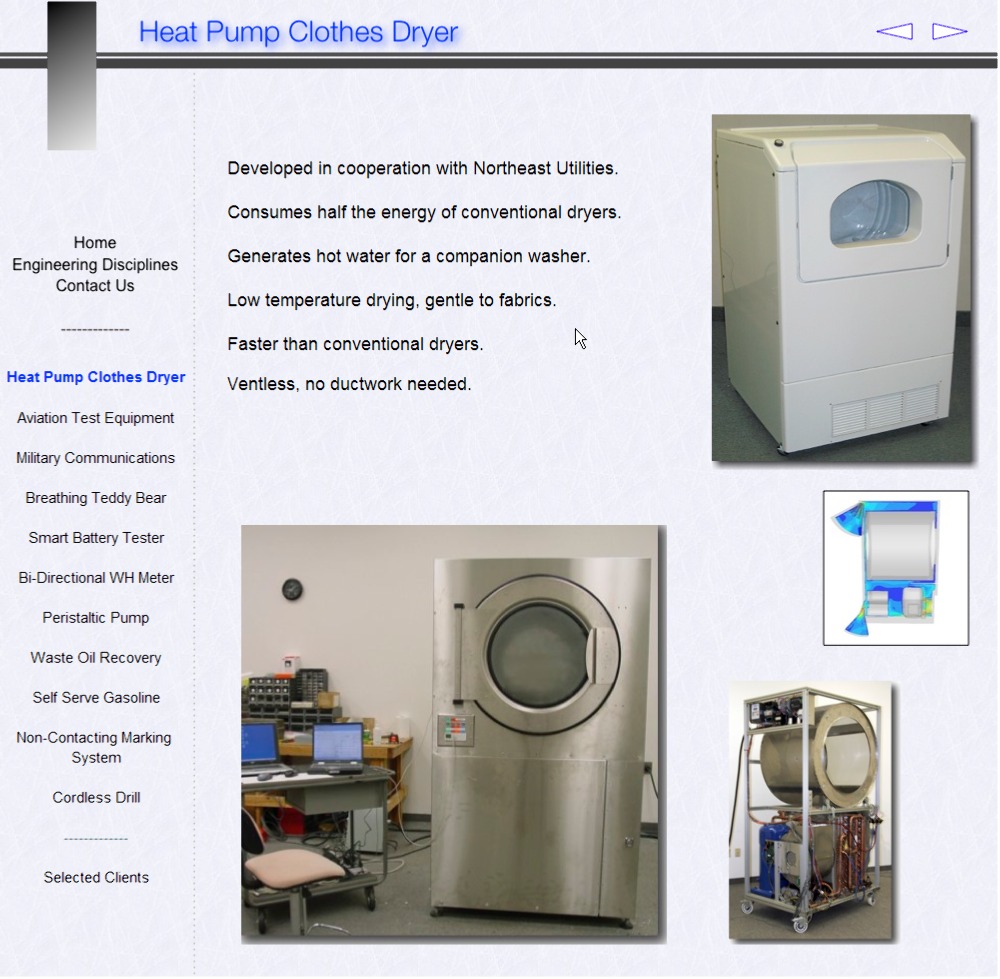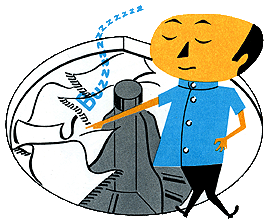|
Thread Number: 34822
Heat Pump Clothes Dryer in the US |
[Down to Last] |
| Post# 521791 6/1/2011 at 10:31 (4,712 days old) by mrb627 (Buford, GA) | ||
 Looks like someone is working on an idea for a full sized heat pump clothes dryer in the US market. 
| ||

|
| Post# 521793 , Reply# 1 6/1/2011 at 10:43 (4,712 days old) by askomiele (Belgium Ghent) | ||
|
If its possible to use the technologie in an industrial enviroment (Miele and Electrolux), it should be introduced on the US market too. I like the maytag window prototype xD! | ||
Post# 521836 , Reply# 2 6/1/2011 at 16:18 (4,712 days old) by Launderess  (Quiet Please, There´s a Lady on Stage) (Quiet Please, There´s a Lady on Stage) |
||
Will Be Another "Staber" Type Product
If it ever goes into production. Limited demand and distribution.
Aside from certain special situations (apartments/multi-family) the market in the United States is mainly for vented dryers. That product line is so mature that new models are merely chugged out to get persons to part with their money by adding bells and whistles to make persons think they *need* a new machine. Proof of this would be how condenser type dryers (what few models there were) in the United States died out by the 1970's or so, and no one has tried anything like them since. Europe and other parts of the world where housing is older and or there are various restrictions on making the required holes in walls for vented dryers make prime markets for special units like condenser or heat pump dryers. Even there many choose to simply vent their dryers indoors with those horrible water bucket "lint collector" things. | ||
| Post# 521852 , Reply# 3 6/1/2011 at 18:45 (4,712 days old) by richardc1983 (Leeds, UK) | ||

The condenser dryers are awful, as they are using the room air as the "refrigerant" for taking the water out of the air...
The heat pump dryers actually have an air con coil which chills the air below the dew point via refrigerant so water is actually removed. Any heat removed from the air is then compressed and maximised by the compressor producing warm dry air. Have you ever put your washing in front of a dehumidifer blowing warm dry air... they are dry in next to no time and the ammount of water collected is staggering. | ||
| Post# 521901 , Reply# 5 6/2/2011 at 00:32 (4,712 days old) by arbilab (Ft Worth TX (Ridglea)) | ||

those horrible water bucket "lint collector" things
==================================================== We tried the bucket thing in the 50s. It SERIOUSLY didn't work very well. Better than nothing but that's not saying much. I'm all for recycling heat but there's really no way to recycle untrapped lint. | ||
Post# 521909 , Reply# 6 6/2/2011 at 01:35 (4,712 days old) by foraloysius  (Leeuwarden, Friesland, the Netherlands) (Leeuwarden, Friesland, the Netherlands) |
||
 | ||
Post# 521927 , Reply# 7 6/2/2011 at 07:35 (4,711 days old) by combo52  (50 Year Repair Tech Beltsville,Md) (50 Year Repair Tech Beltsville,Md) |
||
HEAT PUMP CLOTHES DRYERS I perdict will become a reality to at least some drgree in this country over the next 20 years. Actually [ I know this is going to sound like when Al Gore said he invented the internet ] but my brother Jeff and I sat down for a brainstorming session over 20 years ago and invented the concept of a full sized heat-pump residential clothes dryer. And we planed how we were going to build one but like many great planes it has not been done yet. It would really be fairly easy to do if you rob the refrigeration system from a 10,000-12,000 BUT window AC There are several people on this site that have the skills to carry this out.
Heat pump dryers will succeed this time where early and the currently built non-vent dryers have not captured a big share of the market for one major reason and that is they easily use 1/2 the electricity. Air cooled condensing dryers solve the vent problem but leave all the heat in the room with the dryer and actually use more total power than vented dryers. This expelled heat my be beneficial at certain times of the year but bad at other times. Non vent dryers that use cold water to condense and carry lint moisture and heat did work very well if you have a supply of fairly cold water below 70 degrees. Both air cooled and water cooled dryers are more expensive to build and more troublesome to maintain.
HEAT PUMP will penitentially solve many problems with current dryers today.
1 they will require no venting and no make-up air to operate.
2 they will use 1/2 the electrical power of electric dryers even giving gas dryers a run for the money.
3 They will be much safer with no red hot heating elements and no open gas flame needed.
4 they may be faster and it will be easier to maintain safe temperature conditions for drying clothing.
This is yet another case where technology will solve another problem in our lives, like hybrid cars, electric cars, CFL light bulbs, induction cook tops and to say nothing of wind and solar power. These type of products will employ millions of people around the world. | ||
Post# 521930 , Reply# 8 6/2/2011 at 07:57 (4,711 days old) by peteski50  (New York) (New York) |
||
Heat Pump Units! | ||
Post# 521943 , Reply# 9 6/2/2011 at 09:03 (4,711 days old) by Kenmore71  (Minneapolis, MN) (Minneapolis, MN) |
||
It's interesting It's interesting to see this technology finally being developed. I will be curious to see how long it takes for it to catch on here in the US. I think it's initial market will involve some combination of several factors: those areas where it is difficult to install a vented dryer and those places that don't have piped-in natural gas where heating is done with electricty or oil. In the US, the initial potential is probably in places like the Northeast where piped natural gas is spotty due to geography and electricity and oil are relatively more expensive. In that case it certainly makes energy sense to use a heat-pump dryer that will not empty out a house full of oil or electrically heated air while consuming a fair amount of additional electricity in the process. Now, considering that this technology will be considerably more expensive to manufacture than a traditional vented electric dryer it will be interesting to see where the "tipping" point is for the consumer. This is just a guess, but I would think that the price of one of these dryers would be in the $1500-$2000 range. That is not going to be commercially interesting to a consumer in a market where they have $.65 natural gas and $.08 electricity. However, in a market with no natural gas, $3.00 heating oil and $.20 electricity...we'll have to see.
One thing that I am very curious to see is the actual numbers concerning energy use, especially comparing the number of kw/hrs that this dryer uses compared to traditional electric dryer. It would also be interesting to see a chart that included the actual number of converted energy units used by a heat pump dryer, an electric dryer, and a natural gas dryer taking into consideration the amount of pre-heated home air (also via electricity, oil and nat. gas) that is vented out on say a 40 degree winter day by the later 2 dryers.
As Combo mentions, this idea has been floating around in many people's minds for years (mine included). His information is very good and clear. | ||
| Post# 522015 , Reply# 10 6/2/2011 at 14:30 (4,711 days old) by mrb627 (Buford, GA) | ||
Water heater | ||

 Comes to the Rescue!
Comes to the Rescue!